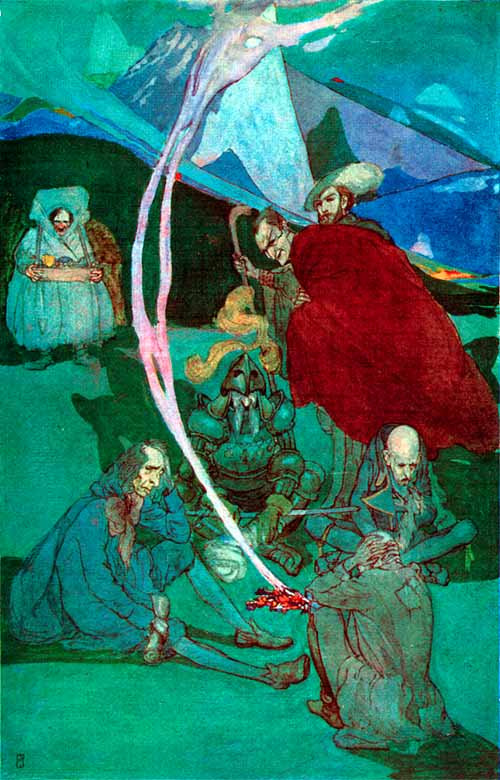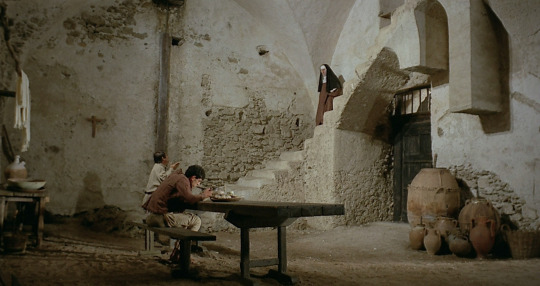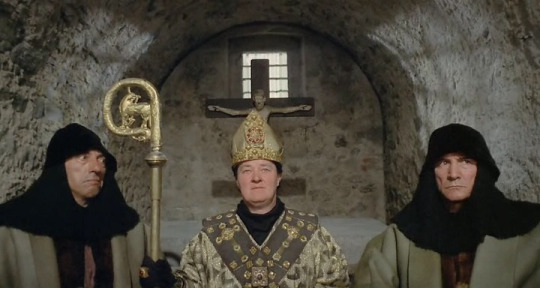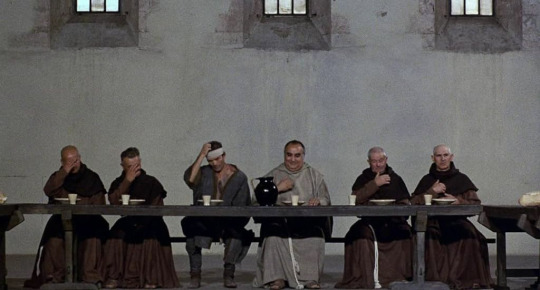#Il Decameron
Explore tagged Tumblr posts
Text



Teorema (1968) // dir. Pier Paolo Pasolini Il Decameron (1971) // dir. Pier Paolo Pasolini I racconti di Canterbury (1972) // dir. Pier Paolo Pasolini
#Teorema#Il Decameron#The Decameron#I racconti di Canterbury#The Canterbury Tales#Pier Paolo Pasolini#my caps#my edits#*ppp
1K notes
·
View notes
Text









t h e d e c a m e r o n (il decameron), 1971 🎬 dir. pier paolo pasolini
#film#italian cinema#the decameron#the Decameron 1971#il decameron#il decameron 1971#pier paolo pasolini#franco citti#ninetto davoli#Ciappelletto of Prato#Andreuccio of Perugia
35 notes
·
View notes
Text

Il Decameron
Pier Paolo Pasolini 1971
7 notes
·
View notes
Text








The Decameron (1971) dir. Pier Paolo Pasolini
#The Decameron#Il Decameron#Pier Paolo Pasolini#At least on Letterboxd this is the highest rated Trilogy of Life entry which is just nonsense to be#Weird messy organization and its best segment was done better by The Little Hours
20 notes
·
View notes
Photo










Pier Paolo Pasolini - The Decameron
With Marilyn Monroe
Art installation, paper dolls, 2018.
#leskovac#pier paolo pasolini#pasolini#marilyn#marilyn monroe#paper dolls#art installation#decameron#il decameron#religious art#pop art
4 notes
·
View notes
Text

The Decameron (Pier Paolo Pasolini, 1971)
A cast of hundreds and only enough teeth for about half of them. They used to play this a lot on SBS, so it's funny to finally consider this outside of their smut peddling and now as a touchstone in Pasolini's development. Cesspools, erect penises, arrant horniness, no fidelity and no reverence, written as folk tales. A type folksiness and authenticity that seems to have been his life's pursuit in impressing upon an upper tier who otherwise would like to disregard or deny its existence. The rabble's gross but at least they're honest.
1 note
·
View note
Text
@isareadsandwatches
TOP 05 FAVORITE TYPES OF STORIES
@faintingheroine @storytellergirl @princesssarisa @softlytowardthesun @the-blue-fairie @themousefromfantasyland @superkingofpriderock @metropolitan-mutant-of-ark @captain-dad @angelixgutz @parxsisburning @amalthea9 @darasuum @marquisedemasque @filmcityworld1
01. The Search for the Lost Husband and The Persecuted Lady


Those are considered the two most widespread kind of folktales. What personally touches me the most about these stories is how they explore the resilience of its female heroines, wich we often underestimake as weakness in real life women.
The Search for the Lost Husband touches on the anxiety about arranged marriages, and how women feared they would be sold by their fathers to wild, monstrous beasts, specially because their husbands are full of secrets. Them the heroines break a taboo, discovering the secret, wich makes the husband depart full of fears and insecurity, while the heroine, having grown in love for the husband, reveals courage and confidence to go in a long, dangerous journey to, now in her own terms, win back her beloved. Rather than end the narrative with the marriage celebrations, this kind of story explores what it takes to keep the marriage.
The Persecuted Lady touches in the domestic drama of women who suffer familial abuse, be it the work force exploitation imposed by a stepmother, the appearance shaming imposed by a birth mother, the sexist neglect of a father or grandfather, or the sexual harassment committed by a father. In some tales, the heroines suffer in silence at their own homes, in others, usually under a disguise that makes her look ugly by societal standards (like a straw coat or an animal’s skin), she runs away and works in servitude in another place, also suffering abuse from the employers, until she has the chance to enjoy at least three festive occasions and catch the eyes of a handsome and young rich suitor (usually a Prince), who uses a piece of garment like a shoe or ring to identify the heroine and marry her. The heroine has a long time to cope with harsh situations, but keeps hopefull for better days, and finds the love and happiness that she didn’t had back at home.
My favorite Search for the Lost Husband tales are The Black Bull of Norroway, The Singing Springing Lark and The Iron Stove. My favorite Persecuted Lady tales are Dona Labismínia, Bicho de Palha, Maria Borralheira, Donkeyskin, Thousand Furs, Princess in a Leather Burqa, Florinda, The Three Sisters, The Tale of Popelka, Tattercoats and Cap’O Rushes.
02. The Story Inside the Story

This is when one character presents a fictional narrative to another character, and the narrative presented is just as engaging as the in universe “real” characters we have been accompanying. Sometimes the characters are just amusing themselves with a fun story, and other times the story has a thematic moral relevance to the “real life” situation they are living. The Story Inside the Story can take the form of A Book Within the Book, A Play Within the Play, A Movie Within the Movie, and so forward. The most famous example, and still my favorite, of Story Inside the Story is probably the One Thousand and One Nights book. Other famous examples include Geoffrey Chaucer’s Canterbury Tales and Giovanni Boccacio’s Decameron.
03. The Family Saga

When the story stars being about a character, them this character dies and we move on to see the story of that character’s children, grandchildren, great-grandchildren, all the while we see their different points of view about the political, cultural and societal changes troughout history. My favorite Family Sagas are the myth of The Mahabharata, the myth of King Arthur, Shakespeare’s Henriad and Rose Tetralogy cycle of plays, Érico Veríssimo’s novel Time and the Wind and Gabriel Garcia Marquez’s novel One Hundred Years of Solitude.
04. The Band of Heroes in a Quest

A group of people who in normal circumstance unlikely would meet and talk to each other is united by fantastical circunstances to go on a quest. The object of the quest varies: it could be a treasure, a search for spiritual enlightment, save an innocent in distress, destroy a cursed artifact or eliminate an ancient evil and save the world they know from doom.
My favorite examples Band of Heroes in a Quest are probably the Vampire Hunters from Bram Stoker’s Dracula novel, the Fellowship of the Ring from Tolkien’s Lord of the Rings novel and the Bronze Saints from Toei’s Saint Seiya anime.
05. Deal with the Devil

A human being who makes a deal, out of either desperation or pure ambition, promising his soul to the Devil. Sometimes the deal is selling the soul right away, other times the deal is a bet, where if the human fails at accomplishing a task, the Devil will take their soul to suffer eternally in Hell. We accompany the main character’s journey as he asks: should I use what the Devil gaved me for my own benefit, or should I use it to help other people in need? If I use it to help people in need, so I am redeemed, or my deal with the Devil will forever tarnish me as an evil person? Was I wise in making this deal? Is the Devil truly evil, or is he just testing the evil I may have inside me?
There are two ways in wich this story ends: either the main character escapes with his soul redeemed (usually by a loophole in the contract) or he has sank so low in doing evil deeds that the Devil wins and takes his soul to Hell. The most famous example of a Deal with the Devil kind of story is the german myth of Doctor Faust.
#tumblr mutuals#fandom musings#pop culture#literature#one thousand and one nights#one hundred years of solitude#time and the wind#il decameron#the canterbury tales#the singing springing lark#the black bull of norroway#the iron stove#cap o' rushes#tattercoats#thousandfurs#all kinds of fur#allerleirauh#the mahabharata#faust#folklore#fantasy#mithology
50 notes
·
View notes
Text
by the way, Boccaccio is getting dragged by this Netflix show, yes. absolutely. I’m mad that one of the most important work of our literature has been reduced into an american “dolce vita” erotica dream.
but we have to remember how they treat their own literature, how they recently treated Shakespeare.
like okay. IT IS FUNNY TO INTERPRET THINGS yes, to joke on them, I’ve done the most out of pockets jokes here, so I’m guilty as charge, but I would also argue…to a certain extent (we don’t have to agree, so please don’t attack me). and also my silly memes on TUMBLR DOT COM cannot compare to multimillion hollywood’s productions.
just hear me out for a second, because I don’t think many people know this.
both the show "The Decameron" and the film starring Sidney Sweeney "Anyone But You" are described as LOOSELY INSPIRED by a literature work.
In fact, Sweeney’s film is based on the play “Much Ado About Nothing” written by William Shakespeare, who’s fame doesn’t need introductions.
now. The Decameron sort of sticks to the setting and it’s simply a 13-years-old-wattpad-fic version of the actual cornice (is not even the full work, not a novella is involved apparently). the real downside here is that they named the show after Boccaccio’s work. criminal. inoltre, la nostra letteratura è già più incline a cattive interpretazioni della loro (come eventi recenti dimostrano) e produzioni del genere non aiutano. La scelta del titolo è per me la cosa che aggrava maggiormente lo show.
but think about Shakespeare. what was that (I did see the film!). why. why. why. like it was so far form the actual thing that you couldn’t even tell. but at least the name wasn’t the exact same, which doesn’t immediately links the film and the literature work together. it already sets the film apart from “Much Ado About Nothing” and the difference between the two seems more justified.
they did Boccaccio dirty, but they have been doing the same with their writers.
#the problem for me is that they used Boccaccio’s title#also this is MY OPINION#so calm down#before writing anything here#deep breaths pls#i just woke up. possibility not the most clear thing I’ve be written here!#ora aspettiamo il Netflix show sulla divina commedia e poi bingo ‼️💥#potrei seriamente [redacted]#“is not that serious” TO YOU.#the Decameron#Decameron#boccaccio#giovanni boccaccio#letteratura italiana#lit tag#literature
55 notes
·
View notes
Text
i miss them (boccaccio's maniculae in the hamilton 90)



and this little flower too! :(
#la relazione ossessiva che ho con questo manoscritto (e il sito della staatsbibliothek che ha messo gli scan)#boccaccio#decameron#manuscripts
53 notes
·
View notes
Text
come specchio riflesso ci vorrebbe tutto shakespeare reso però sotto forma di fiction rai
#però posso dire#come adattamento del decameron non c’entra una minchia ma come ‘gente in costume si fa il lockdown’ può starci#‘starci’ nella misura in cui è venerdì e sono stanca non scherziamo#la sceneggiatrice comunque da prendere a randellate sulla pubblica piazza perché allora poteva fare direttamente ‘gente in costume#in lockdown’ e saremmo stati più felici forse
9 notes
·
View notes
Text







Il Decameron (1971) // dir. Pier Paolo Pasolini
385 notes
·
View notes
Text










t h e d e c a m e r o n (il decameron), 1971 🎬 dir. pier paolo pasolini
#film#italian cinema#the decameron#The Decameron 1971#Il Decameron#Il Decameron 1971#Pier Paolo Pasolini#franco citti#ninetto davoli#vincenzo amato#Ciappelletto of Prato#Andreuccio of Perugia#Masetto of Lamporecchio
21 notes
·
View notes
Text
thinking about romano singing this song that i heard in il decamerone
4 notes
·
View notes
Text
So I have been watching hunterxhunter,
and also, I had been listening to The Decameron stories, so when I saw Kite's death scene, I had medieval thoughts.
"Put him in a basil pot" was my first thought after I gasped.
#go read lisabetta di messina it a tragic ride#side note: I appreciate they didn't cut his hair off#hunter x hunter#kite hxh#kaito hxh#il decameron reference
1 note
·
View note
Text



Why create a work of art when dreaming about it is so much sweeter?
Il Decameron (1971), Dir. Pier Paolo Pasolini
23 notes
·
View notes